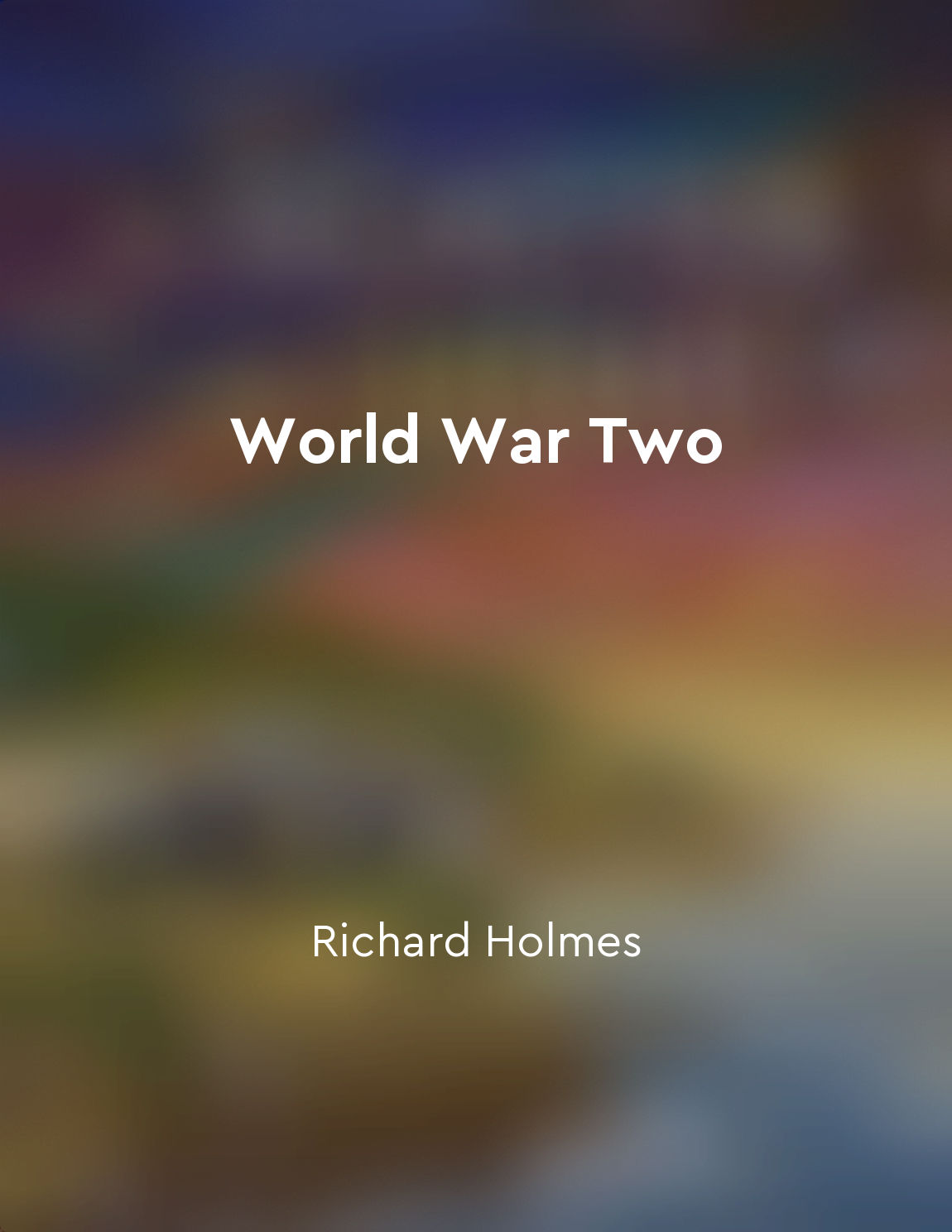Technology revolutionized warfare from "summary" of World War Two by Richard Holmes,Ann Kramer,Charles Messenger
The impact of technology on warfare during World War Two cannot be overstated. The advancements in weaponry, communication, and transportation revolutionized the way battles were fought and ultimately shaped the outcome of the war. One of the most significant technological advancements during this time was the development of tanks and airplanes. Tanks provided ground forces with unprecedented mobility and firepower, allowing them to break through enemy lines and quickly advance. Airplanes, on the other hand, gave armies the ability to conduct aerial reconnaissance, provide air support, and even drop bombs on enemy targets. Communication technology also played a crucial role in the war. The invention of the radio allowed for real-time communication between troops on the ground and commanders in the field. This improved coordination and decision-making, giving military leaders a significant advantage over their adversaries. Furthermore, advancements in transportation technology, such as the development of the jeep and landing craft, allowed for the rapid deployment of troops and supplies to the front lines. This increased the speed and efficiency of military operations, making it easier for armies to launch offensives and respond to enemy attacks.- The technological revolution that occurred during World War Two transformed the nature of warfare. It gave armies the ability to strike with greater precision and speed, leading to more decisive victories on the battlefield. Without these advancements, the outcome of the war may have been very different.


